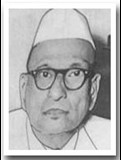Editors note: Carduus marianus is often used in homeopathy as a liver tonic. Carduus marianus mother tincture is used for portal congestion, gall bladder stones, dropsy, jaundice, liver cirrhosis etc. The homeopathic medicine Cardus has no reported side effects.
The botanical name of this medicine is Silybum marianum and the common name is Milk Thistle. It belongs to the Asteraceae family.
The exact dose of this homeopathic medicine has to be decided by the homeopath and will depend upon the nature of the disease being treated. It is also used in higher potencies according to symptom similarity.
Generalities
It is primarily a liver and spleen remedy and for hemorrhages due to the affections of those organs, which gives relief. It acts on veins causing blood stasis, varicose veins and ulcers. Diseases of miners associated with difficult breathing.
Dropsical conditions depending upon portal congestion and congestion of pelvic organs. Abuse of beer. Debility, fatigue; worse eating and riding, with frequent yawning. Stitching, drawing, burning pains.
Carduus marianus has Liver affections associated with lung affections.
Worse
Lying on left side. Beer. Eating. Touch. Motion. Cellars.
Better
Bleeding.
Mind
Forgets what he has just intended to do. Hypochondriacal. Despondent. Joyless.
Head
Dull frontal headache. Vertigo with tendency to fall forward better by nosebleed.
Eyes
Burning and pressure in eyeballs.
Nose
Epistaxis, habitual in psoric young persons.
Face
Earthy, yellowish grey or florid. Weak upper lip.
Mouth
Tongue has white centre, with red indented edges. Tongue weak. Taste bitter.
Stomach
Poor appetite. Nausea, retching and vomiting of green acid fluid, or blood. Aversion to salted meat.
Carduus marianus Abdomen

Stitches in liver worse lying on left side. In Cardus marianus, Liver affections cause lung diseases, causing haemoptysis. Gall stones. Cirrhosis, with dropsy.
Distension of abdomen with rumbling. Diaphragm high. Constipation with hard, difficult, knotty, clayey stools. Haemorrhagic piles. Profuse diarrhoea due to rectal cancer. Melaen. Sensation of motion in intestines on expiration, around navel.
Urinary organs
Urine; turbid; golden yellow.
Female
Chronic uterine hemorrhage, with portal derangement.
Respiratory organs
Carduus marianus has Pain in chest going to shoulders, back, loins and abdomen, with urging to urinate. Asthmatic respiration. Cough; with stitches in sides of chest, with bloody sputum.
Extremities
Pain in hip joint spreading through buttocks down the thighs, worse stooping, with difficult rising. Feet weak; on sitting. Drawing pain in entire back.
Fever
Chill and fever, with jaundice.
Skin
Broken or hard thrombosed veins. Varicose ulcers.
Carduus marianus is Related to
Calcarea; Sanguinaria

